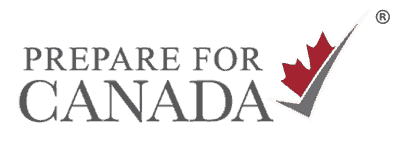Watch Linda Ryan discuss how *BCCA-Integrating Newcomers can help you access jobs faster!
Once you arrive in Canada, you have a decision to make: should I get a “survival job” to earn money or look for a job in my profession. A survival job is not the best first job you can get. But, since they are easy to obtain, survival jobs can be a helpful way to earn money to pay the bills. However, once you get a survival job, do not give up on your job search. The choice you make will greatly affect how you live in Canada for the next few years. This article will help you decide which path you should choose when you arrive in Canada.
We spoke to Linda Ryan, Provincial Manager (Apprenticeship Services) with BCCA. When it comes to survival jobs, Linda Ryan shares her advice:
“My advice is to fasten your proverbial seat belt, hunker down and budget to be out of work for up to six months. Then before you opt for that survival job (a job that pays the bills but doesn’t relate to your career dreams and/or existing education, qualifications and industry experience) take a deep breath and consider all your options and the associated positive and negative consequences of each. Only when you have given yourself the gift of considering all impacts of a decision, should you take action.
Linda Ryan, Provincial Manager (Apprenticeship Services), BCCA
What is a Survival Job?
A survival job can pay the bills. But, it doesn’t relate to your career dreams or professional background. Often, it’s a low-paying job that requires little to no skills. These jobs are easy to obtain and earn you just enough to pay the bills. Generally, survival jobs earn you under $20 per hour.
Survival jobs usually have long and tiring shifts with only one or two days off every week. These jobs also offer very few benefits from the employer such as medical or dental benefits. Although, it’s good to ask the employer if they do provide any benefits.
Advertisement:
Some examples of survival jobs include:
- warehouse or factory worker
- cashier
- sales associate
- delivery person, and
- restaurant worker, to name a few.
Since a survival job requires little skill, it doesn’t have to be related to your profession. What skills you might need for your survival job, the employer will provide training.

Disadvantages of Earning Money with Survival Jobs
Getting a survival job is not always the best option after you arrive in Canada. Survival jobs can leave you with little time and energy to continue your job search. At the same time, survival jobs often give you a feeling of self-satisfaction or ease. This is because they don’t require you to do a lot of thinking and the tasks you have to do are generally easy.
When both of these factors are combined, newcomers often give up on their job search after a few years of doing survival jobs. The longer you keep a survival job, the harder it will become for you to find a job in your profession.
Another big disadvantage of doing survival jobs in the long term is experience. At first, it might sound illogical, but doing a survival job for a long time can hurt your Canadian experience.
Advertisement:
Earning money with a survival job for a short period is good for building Canadian experience. However, when you do such a job for a long time, employers might be hesitant to hire you as you have been doing only a survival job for the past few years. Any experience you might have had in your profession will count as older work experience and may not be taken into consideration.
“As a skilled newcomer to Canada often the biggest shock to your career trajectory is realizing that it takes time to secure work in your field of expertise.”
Linda Ryan, Provincial Manager (Apprenticeship Services), BCCA
How Much Income Will You Earn?
Then, of course, there is the matter of income. Survival jobs earn you an annual income of around $30,000 to $50,000. Depending on where you live in Canada, this income probably won’t be enough to save up for a down payment and buy a house.
In cities like Toronto or Vancouver, this salary will barely even pay the rent. Overall, a survival job allows you to earn income to help you get by until you find a job in your field. It is not meant as a permanent job and you should never think of it as your permanent job.
Many survival jobs are found in the service sector such as restaurants or tourist attractions. As Ryan explained, based on the experience of her clients: “survival jobs pay lower and create a negative cycle of ‘no time and no energy’. This is because you have to work longer hours to earn enough money, or you can’t take time off to attend interviews for your dream job. As a result, you have little energy to go home after a shift and invest in your career, pastimes, or family. This negative cycle leaves newcomers asking what did I come to Canada for?”
Another client of Ryan’s stated: “survival jobs can be more of a hindrance than a help for your career because they cannibalize the energy you have for networking, job hunting, professional development and interviewing.”
Related Posts:
Crafting Your Job Search Action Plan to Work in Canada
Develop a Career Plan to Achieve Success in Canada!
How to Career Change to Canada’s Construction Industry
Canadian Style Resume: Is it Necessary?
Cover Letter Format that Employers Notice
Working in Canada | A Guide to Land Your Dream Job!
Mechanical Engineers are Needed in these Canadian Cities
Advantages of Earning Money with Survival Jobs
Since they are easier to obtain than regular jobs, survival jobs are usually the first job newcomers get in Canada. Canada is an expensive country that is hard to live in for a long time without earning stable money. A survival job will earn you just enough money to get by and maybe acquire some savings if you spend carefully.
Looking at the disadvantages of survival jobs, it is obvious that they may hurt your chances of getting a job in your profession. However, survival jobs are important in some situations.
When you arrive in Canada it’s wise to have up to six months of savings while you conduct your job search. If you don’t have enough savings to last you a few months, it will be hard to continue your job search without earning additional money. In this scenario, it’s helpful to get a survival job as soon as you arrive in Canada to earn money.

If you have enough savings to last you a few months, you should look for a job in your profession without any distractions. If you still cannot find a preferred job after that time, and your savings are running out, it’s time to find a survival job. As the name suggests, survival jobs are there just so you can pay the bills, nothing more.
Should You Get a Survival Job to Earn Money?
The answer to that question varies depending on your situation. Not everyone is in the same financial situation when they arrive in Canada. Whether or not you should get a survival job depends on how much savings you have, and the job outlook for your profession.
If possible, try to find a job that is related to your field. This way, when you apply for a job in your profession, you will already have some Canadian experience.
If you do have some savings, plan how long you can live on your savings. In that time, do everything in your ability to search for your preferred job. This can include:
- networking (letting people know you are looking for a job)
- visiting online job boards, and
- contacting employment agencies.
At the end of this time, if you still can’t find a good job, it’s time for a survival job to earn money.
It’s vital to research how your profession works in Canada before you arrive. Many newcomers come to Canada thinking they will find a job in their profession easily. This isn’t always the case. Getting a job in Canada is easy if you conduct your job search the right way. This is why it is really important to research your profession before you arrive and start networking with people in your profession.
What Kind of Survival Jobs Should I Look For?
Most people will probably look for the highest-paying survival job they can find. This may not be the best approach. It is always best to find a survival job that is related to your profession in some way.
If you have a specific organization or company you want to work for, try to get a job there. For example, if you’re a teacher, you could try to get a job as a lunch supervisor or an assistant teacher. That way, when you apply for a teaching job, you will already have some Canadian experience that can help you land the job.
If you cannot find a job that is directly related to your profession, you can try to look for survival jobs that share some of the same skills with your profession. A good example would be teachers who could tutor part-time or even full-time to show future employers you can teach to Canadian standards.
When you search for survival jobs with this approach, your chances of landing a good job will be greater.
How Can I Find a Survival Job in Canada?
Finding a survival job in Canada is fairly easy if you know where to look. Below are some resources and techniques you can use to find a survival job in Canada.
Networking
Networking is the number one way of getting any kind of job in Canada. Simply put, networking is building relationships that will help you with your career. Effective networking happens by building two-way relationships. You have to show your value and prove that you have the required skills and experience to do the job. Your network can include your friends and relatives as well as people you meet during your job search.
Just showing your resumé to the HR department of the organization will not be enough. Words are much more effective and convincing than any cover letter or resumé. When you talk to someone who can help you get a job, tell them about your capabilities and skills. When that person hears about a job opening, make sure they remember you. If you left a good impression on them, they might even recommend you for the job.
Employment Agencies
Another great way to find jobs is through employment agencies. These agencies are hired by companies to find capable and experienced workers. It would be a good idea to look up some of the best employment agencies in your area and approach them. According to the Association of Canadian Search, Employment & Staffing Services, over two million workers are hired through employment agencies every year!
Online Job Boards
Online job boards are the most common way to find jobs. Websites such as Indeed and LinkedIn are great online job boards to find jobs. LinkedIn can also be used for networking. Employers use online job boards to advertise available jobs. If you see a job that interests you, you can apply directly to the employer through the job board.
Read: Canada Job Bank: Your Vital Research Tool
In summary, a survival job is not the best first job you can get. But, since they are easy to obtain, survival jobs can be a helpful way of earning money to pay the bills. Once you get a survival job, however, do not give up on your job search. Ryan offers this final advice:
“As a newcomer looking for your first role in Canada, remember that the sooner you make it look like you have ‘Canadian experience’ (i.e. through career-relevant credentials, memberships of local professional associations, building your network, taking more junior roles that will lead to your dream job), the sooner you’ll be considered equal to Canadian educated and experienced job candidates. This will allow you to get your foot in the career door faster! And once you’re in, your career is already building momentum to be back on track!
Learn More about BCCA-IN
*The BCCA-Integrating Newcomers program is a free, pre-arrival, Canada-wide service, focused on helping high-skilled newcomers explore and build successful construction careers. Services include one-on-one career guidance, tailored resume, cover letter, LinkedIn advice, and an in-depth skills and education assessment to help newcomers focus on the best career, credentials and connections activities. The Integrating Newcomers team not only has multi-industry experience but are also immigrants who have built successful careers in Canada.

